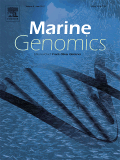
Mobile DNA
Scope & Guideline
Exploring the Frontiers of Genetic Mobility
Introduction
Aims and Scopes
- Transposable Element Biology:
The journal extensively covers the biology of transposable elements (TEs), including their structure, function, and evolutionary dynamics. This includes research on various types of TEs, such as retrotransposons and DNA transposons. - Genomic and Transcriptomic Analysis:
Mobile DNA emphasizes genomic and transcriptomic approaches to study TEs, offering insights into their influence on gene expression, genomic architecture, and evolutionary history. - Evolutionary Interactions:
The journal explores the interactions between TEs and their hosts, including evolutionary adaptations and co-evolutionary dynamics, highlighting the significance of TEs in the broader context of evolution. - Technological Innovations:
Mobile DNA publishes research on novel methodologies and tools for the detection, annotation, and analysis of TEs, contributing to advancements in the field of genomics. - Applications in Health and Disease:
The journal addresses the implications of TEs in health and disease, including their roles in cancer, autoimmune diseases, and genetic disorders, making it relevant to medical research.
Trending and Emerging
- Functional Genomics of TEs:
There is an increasing trend towards functional genomics studies that explore the roles of TEs in regulating gene expression and their contributions to phenotypic diversity. This includes research on how TEs influence genomic functions and responses to environmental changes. - CRISPR and Genetic Engineering Applications:
The journal has seen a rise in publications utilizing CRISPR technology for targeting and studying transposable elements. This trend highlights the growing intersection between TE research and genetic engineering, providing opportunities for novel applications. - Environmental and Ecological Dynamics of TEs:
Emerging studies are focusing on the ecological impacts of TEs, particularly in relation to environmental stressors and adaptation. This reflects a broader interest in understanding how TEs contribute to ecological and evolutionary processes. - Host-TE Interactions and Immune Responses:
Research examining the interactions between transposable elements and host immune responses is gaining traction. This theme is pertinent to understanding the implications of TEs in health and disease contexts. - Cross-Species Studies of TEs:
There is a trend towards comparative studies across species to understand the conservation and variability of transposable elements. This approach enhances the understanding of TE evolution and function in diverse biological systems.
Declining or Waning
- Clinical Applications of TEs:
Research focused on the clinical implications of transposable elements, particularly in the context of specific diseases, appears to be declining. Fewer studies are being published that directly connect TE activities to clinical outcomes or therapeutic interventions. - Characterization of Specific TE Families:
There seems to be a waning interest in the detailed characterization of specific transposable element families, as the journal's recent issues are increasingly oriented towards broader themes such as evolutionary dynamics and functional impacts. - Historical Perspectives on TEs:
Papers discussing historical or retrospective analyses of transposable elements and their evolutionary significance are becoming less common. The journal is pivoting towards more current and applied research rather than historical studies.
Similar Journals

PLoS Genetics
Exploring the frontiers of genetics with unparalleled accessibility.PLoS Genetics, published by the PUBLIC LIBRARY SCIENCE, is a leading open-access journal dedicated to advancing the field of genetics, molecular biology, and related disciplines. With its ISSN of 1553-7404, this esteemed journal has been offering unrestricted access to its content since 2005, fostering a global community of researchers, professionals, and students. Situated in the United States, its contributions can be found at 1160 Battery Street, Ste 100, San Francisco, CA 94111. As of 2023, PLoS Genetics proudly holds a Q1 ranking in multiple categories including Cancer Research, Ecology, Evolution, Behavior and Systematics, Genetics, and Molecular Biology, underscoring its impact in these vital scientific areas. The journal's commitment to disseminating high-quality research is reflected in its impressive Scopus rankings, with notable positions in various fields of study, ensuring that it remains a crucial resource for cutting-edge research and innovation. By providing an open-access platform, PLoS Genetics not only enhances the visibility of genetic research but also encourages collaborations and the sharing of knowledge that can lead to significant breakthroughs in science.

DNA RESEARCH
Unveiling the secrets of genetics, one article at a time.DNA RESEARCH is a pioneering open-access journal published by Oxford University Press, dedicated to advancing the field of genetics and molecular biology. Since its inception in 1994, the journal has been at the forefront of scientific innovation, providing a global platform for researchers to publish high-quality findings that drive the understanding of DNA and its implications in medicine. With an impactful presence characterized by a Q2 ranking in Genetics, a Q1 ranking in Medicine (miscellaneous), and a Q2 ranking in Molecular Biology as per the latest 2023 assessments, DNA RESEARCH stands as a vital resource for both established scholars and emerging scientists. The journal's diverse range of articles caters to a wide audience, fostering collaboration and the sharing of knowledge. Researchers, professionals, and students alike will find an abundance of cutting-edge research and insights that can inform their work and further their understanding of this critical scientific domain. For more information and to access articles, visit the journal's website at Oxford University Press.

INFECTION GENETICS AND EVOLUTION
Unlocking the Secrets of Infection and AdaptationINFECTION GENETICS AND EVOLUTION is a premier scholarly journal published by Elsevier, focusing on the dynamic field of infection genetics and evolutionary biology. Since its inception in 2001, this journal has emerged as a critical platform for the dissemination of cutting-edge research, bridging the gap between molecular genetics, evolutionary theory, and infectious disease study. With an influence profound enough to secure its status in the Q1 category for Ecology, Evolution, Behavior and Systematics and impressive Q2 rankings in Genetics, Infectious Diseases, and Microbiology, the journal offers researchers unparalleled insights that advance the understanding of pathogen evolution and host interactions. Despite the lack of Open Access, the research published in this journal significantly contributes to the academic discourse and informs public health approaches. By publishing high-quality studies and reviews through 2024, INFECTION GENETICS AND EVOLUTION remains indispensable for academics, professionals, and students seeking to explore the intricate mechanisms of infection and adaptation in various organisms.

Genome Biology and Evolution
Exploring the Frontiers of Genetics and EvolutionGenome Biology and Evolution, published by Oxford University Press, is a leading open-access journal that has been instrumental in advancing research in the fields of genetics and evolutionary biology since its inception in 2009. With an impressive Q1 ranking in both Ecology, Evolution, Behavior and Systematics and Genetics in 2023, the journal is recognized for its high-quality publications that contribute significantly to the understanding of genomic processes across diverse organisms. As part of its commitment to disseminating impactful research, it is dedicated to fostering interdisciplinary collaboration among scientists and providing a platform for innovative findings. Researchers, professionals, and students alike are encouraged to explore the wealth of knowledge within its pages, contributing to ongoing discussions that shape our understanding of evolutionary mechanisms and genomic data interpretation. With its robust access options and a strong commitment to wide dissemination of research, Genome Biology and Evolution remains an essential resource for anyone engaged in the life sciences.

Frontiers in Genetics
Transforming Genetic Discoveries into SolutionsFrontiers in Genetics is a premier academic journal dedicated to advancing the field of genetics through high-quality, peer-reviewed research. Published by FRONTIERS MEDIA SA in Switzerland since 2010, this Open Access journal provides a platform for researchers and practitioners to disseminate innovative findings across various subfields, including clinical genetics and molecular medicine. With a notable emphasis on interdisciplinary approaches, the journal holds a strong position in the academic landscape, achieving Q2 rankings in key categories such as Genetics and Molecular Medicine in 2023. Not only does Frontiers in Genetics contribute to the scholarly dialogue by publishing impactful studies, but it also promotes accessibility to vital research, ensuring that knowledge is available to a global audience. This journal is a vital resource for researchers, professionals, and students looking to stay at the forefront of genetic discoveries and their applications, reflective of its engagement with contemporary challenges in genetics and healthcare.

Marine Genomics
Diving Deep into the World of Marine GeneticsMarine Genomics, published by Elsevier, is a pivotal journal specializing in the intersection of genomic sciences and aquatic biology. With an ISSN of 1874-7787 and an E-ISSN of 1876-7478, this journal serves as a vital platform for researchers and professionals eager to advance our understanding of marine genetic diversity, evolutionary processes, and biotechnological applications. The journal holds a Q2 ranking in Aquatic Science and a Q3 ranking in Genetics, reflecting its significant contributions to the field alongside its impressive Scopus rankings in both Agricultural and Biological Sciences and Biochemistry, Genetics, and Molecular Biology. As an essential resource for students and academics alike, Marine Genomics is committed to fostering awareness and knowledge of marine ecosystems through quality research disseminated to a global audience. This journal is particularly crucial in an era where understanding aquatic genomics is increasingly vital for conservation efforts and sustainable practices in marine environments.

Annual Review of Genomics and Human Genetics
Illuminating the Pathways of Molecular BiologyAnnual Review of Genomics and Human Genetics, published by ANNUAL REVIEWS, represents a pivotal platform in the field of Genetics and Molecular Biology. With an impressive impact factor reflecting its high citation rate and scholarly influence, this journal is renowned for its authoritative reviews that synthesize current research across genomics and human genetics. Highlighting its Q1 category rankings in both Genetics and Clinical Genetics, as well as its ranking within the top tiers of Biochemistry and Genetics, the journal stands out as a leading resource for researchers, professionals, and students eager to stay abreast of groundbreaking developments in these rapidly evolving fields. While not currently an open access journal, its rigorous peer-review process ensures the highest standards of scientific integrity. Researchers can access comprehensive reviews that delve into both fundamental genetics concepts and cutting-edge discoveries, making it an essential resource for advancing understanding in human genetics and its applications.

GENES & GENETIC SYSTEMS
Connecting Researchers Through Open Access KnowledgeGENES & GENETIC SYSTEMS, an esteemed journal published by the Genetics Society of Japan, serves as a vital platform for the dissemination of innovative research within the fields of genetics, molecular biology, and medicine. Established in 1996 and based in Mishima, Shizuoka, Japan, this journal has actively contributed to the academic community, fostering collaboration and knowledge sharing among researchers and professionals. The journal’s impact can be seen through its category quartiles, which reflect its position in Genetics, Molecular Biology, and Medicine, and while it currently ranks in Q4 in Genetics and Q3 in Medicine (miscellaneous), it is poised for growth as it continues to publish pivotal studies. With a commitment to open access, GENES & GENETIC SYSTEMS ensures that research findings are freely accessible to the global scientific community, promoting a more inclusive approach to knowledge distribution. This journal is essential for students, researchers, and professionals seeking to stay informed of advancements in genetic research and its implications for the broader field of medicine.

ANIMAL GENETICS
Illuminating Genetic Pathways in Animal ResearchANIMAL GENETICS, published by WILEY, is a leading journal in the fields of Animal Science and Zoology, with a commendable Q1 classification for 2023, reflecting its critical role in advancing research and knowledge in animal genetics. Established in 1986, this journal has become a cornerstone for professionals, researchers, and students alike, providing a platform for innovative research that explores the genetic underpinnings of animal biology. With an ISSN of 0268-9146 and an E-ISSN of 1365-2052, it boasts a significant impact in both agricultural and biological sciences, as indicated by its ranking of #74 out of 490 in its category on Scopus, positioning it in the 85th percentile for Animal Science and Zoology. Readers can access high-quality, peer-reviewed articles that not only illuminate current advancements but also foster future research directions. While currently not an open access journal, ANIMAL GENETICS remains vital for anyone engaged in the exploration of genetics and its applications in medicine and beyond, with a continual commitment to publishing findings that shape the future of animal breeding, conservation, and genetics research.

NATURE REVIEWS GENETICS
Cutting-edge Insights for Tomorrow's Genetic Breakthroughs.NATURE REVIEWS GENETICS, published by NATURE PORTFOLIO, stands as a leading journal in the field of genetics, boasting a remarkable reputation reflected in its Q1 ranking across multiple categories including Genetics, Clinical Genetics, and Molecular Biology. With an impressive percentile of 99th in both Genetics and Clinical Genetics, as well as a solid rank in Molecular Biology, this journal is pivotal for researchers, professionals, and students alike who seek to stay informed on the latest advancements and comprehensive reviews in genetic research. The journal's scope encompasses a wide array of topics, providing in-depth insights from fundamental genetic principles to clinical applications, underscoring its importance in bridging basic science and medical practice. Though not an open-access publication, it remains accessible through various academic institutions, enhancing its reach and influence within the scientific community. With publication years spanning from 2000 to 2024, NATURE REVIEWS GENETICS continues to shape the future of genetics research and education.